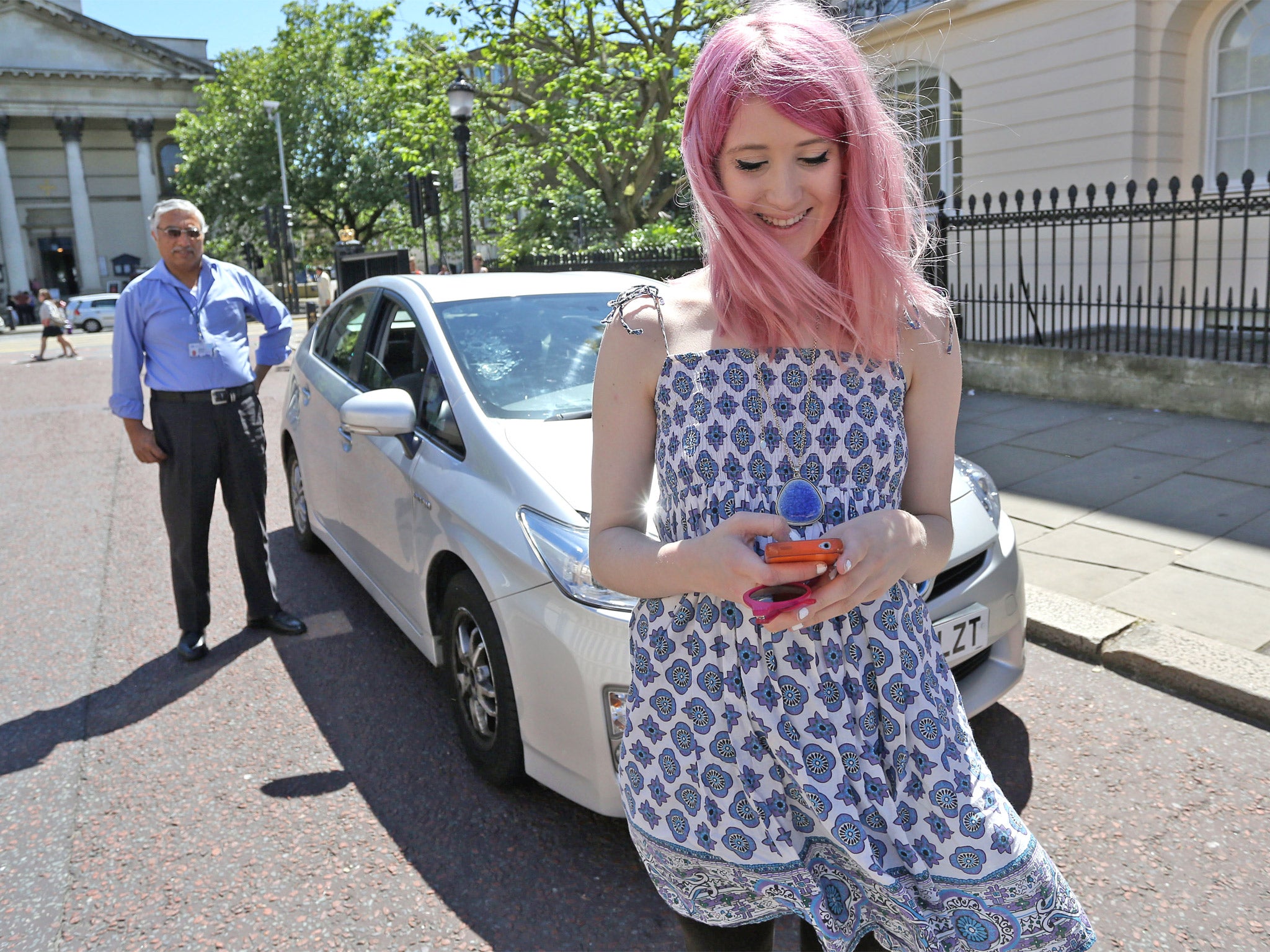Road-testing the taxis: Uber was cheaper and quicker than a black cab
Chloe Hamilton took identical trips to compare the classic with the cashless


Your support helps us to tell the story
From reproductive rights to climate change to Big Tech, The Independent is on the ground when the story is developing. Whether it's investigating the financials of Elon Musk's pro-Trump PAC or producing our latest documentary, 'The A Word', which shines a light on the American women fighting for reproductive rights, we know how important it is to parse out the facts from the messaging.
At such a critical moment in US history, we need reporters on the ground. Your donation allows us to keep sending journalists to speak to both sides of the story.
The Independent is trusted by Americans across the entire political spectrum. And unlike many other quality news outlets, we choose not to lock Americans out of our reporting and analysis with paywalls. We believe quality journalism should be available to everyone, paid for by those who can afford it.
Your support makes all the difference.Ahead of the cabbie protest in London on Wednesday, I decided to hit the road to find out whether the smartphone app that lets you book a taxi at the tap of a touch screen is really a match for London’s traditional black-cab drivers.
In the interests of fairness, I tested the taxis across the same distance, taking an Uber car from The Independent’s offices in Kensington to Marylebone Road, before hailing a black cab to take me back to the office.
Uber is cashless, so journeys are charged to a pre-loaded credit or debit card. As I sit outside the office stabbing bank details into my phone, I can’t help but wonder whether stopping off at a cashpoint along the way, although less techy, would actually be simpler.
Still, I click “request” and am told a driver is six minutes away. I’m even provided with the make of the car, its registration number and a picture of the driver, Masood.
I track Masood’s car on the app’s map. He arrives within the allotted time and I hop in, telling him I want to go to Marylebone Road. He nods cheerfully and, without setting a sat nav, sets off.
Masood explains that he’s been working for Uber for three weeks. He used to be a mini-cab driver but says Uber gives him more freedom. “People prefer Uber,” he says when I ask about the protest. “Look at all those empty black cabs. They’re just upset because they’re losing customers.”
The journey to Marylebone takes 18 minutes and 6 seconds and costs exactly £10. I know this because as I clamber out of the car and into the dazzling sunshine, Masood taps a button on his smart phone, completing the journey and emailing a receipt direct to my inbox. It’s frightening to think how much money you could spend if you were inebriated and didn’t have to mentally calculate the amount of cash leaving your wallet.
Hailing a taxi on Marylebone Road takes 10 minutes. My cabbie, Rick, chooses a different route back, one which takes more than 20 minutes and costs £16. Slower and dearer than Uber. He doesn’t take cards, so we have to stop at an ATM on the way.
Rick will be at the protest tomorrow. “It’s important to make a statement,” he says. “You wouldn’t get on to an unregulated bus.” Why does he think Uber has been so successful? “There’s a lot of money in it,” he says. “Unfortunately, I think that will be the decider.”
Join our commenting forum
Join thought-provoking conversations, follow other Independent readers and see their replies
Comments